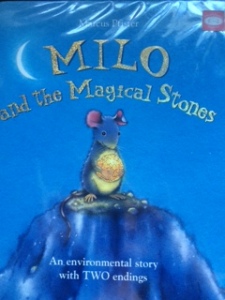Have you ever wondered if your child is gifted?
Perhaps they taught themselves to read at an early age?
Maybe they display empathy towards others beyond their years?
Some gifted children can manipulate numbers ten years before their age peers.
Being gifted can be seen in many different ways and although my blog has a strong focus on books and global issues, gifted education is something very close to my heart.
Having a masters in Gifted ed and working closely with gifted children over many years of teaching I have come across gifted children in all different types of classrooms.
One issue many gifted children have is not being recognised by their teacher. Parents often have a good sense (but sometimes doubt themselves or don’t know who to compare their children to) of what their children can and can’t do – and need to pass this onto their child’s teacher.
In order for our children to be supported we need to recognise the gifts they have and support them.
Here are some possible ways you can recognise if your child is gifted
- Walk and/or talk early
- Have an unusual sense of humour
- Be very curious and ask complex questions
- Show an early or intense interest in books, often learning to read at a young age
- Make unusual connections between topics
- Be self motivated, perfectionist, persistent or independent
- Have a long attention span and unusual memory for details or facts
- Learn rapidly, with little practice
- Think faster than they are able to write
- Prefer the company of older children
- Have unusual perception and problem solving ability
- Worry about adult issues and problems
- Need less sleep than most children
- Not always show their abilities in a school setting
It is important to remember that:
- Giftedness is not static – it is always changing so don’t arum just because your child can’t read at two that they are not gifted.
- Anyone can be gifted – It is not restricted to age, race, gender or disabilities/abilties.
- Being gifted does not always mean you are gifted in everything – You may only be gifted in one particular area
There are many different ways gifted children can be supported depending on their needs, some are:
- Subject acceleration
- Grade acceleration
- Mentoring
- External programs with like minded peers
- Working alongside teachers in planning how they learn.
There was a great article in the Australian today stating that one of the key problems gifted students face is boredom in the classroom which can lead to low self esteem, poor behaviour and disengagement with education. As parents and teachers we need to make ourselves aware of what to look for in order to identify gifted students and then how we can best support them so that their gifts turn into talents.



